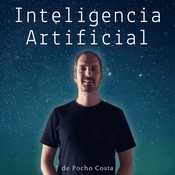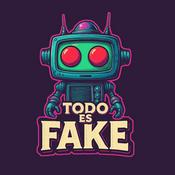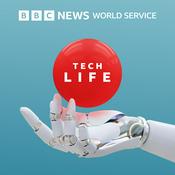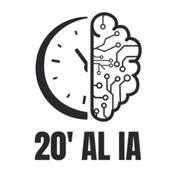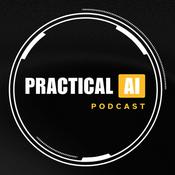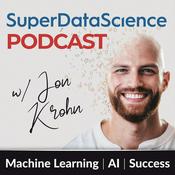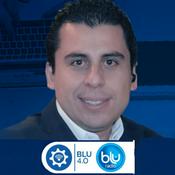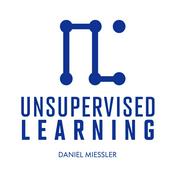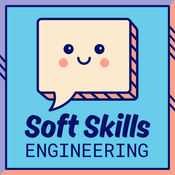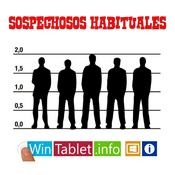270 episodios
- Is the traditional engineering backlog officially a thing of the past? Andrew and Ben explore the principles of outcome engineering and how continuous productivity is permanently changing how software gets built. They also examine a busy week of industry news, from Peter Steinberger joining OpenAI to the amusing and bewildering story of a hit piece written by an autonomous AI agent. Finally, the hosts break down the existential crises of Gemini 3 Pro inside a virtual village and why Meta product managers are rebranding themselves as AI builders.
Follow the show:
Subscribe to our Substack
Follow us on LinkedIn
Subscribe to our YouTube Channel
Leave us a Review
Follow the hosts:
Follow Andrew
Follow Ben
Follow Dan
Follow today's stories:
OpenAI's acquisition of OpenClaw signals the beginning of the end of the ChatGPT era
An AI Agent Published a Hit Piece on Me
Outcome Engineering
The Drama and Dysfunction of Gemini 2.5 and 3 Pro
Several Meta employees have started calling themselves 'AI builders'
OFFERS
Start Free Trial: Get started with LinearB's AI productivity platform for free.
Book a Demo: Learn how you can ship faster, improve DevEx, and lead with confidence in the AI era.
LEARN ABOUT LINEARB
AI Code Reviews: Automate reviews to catch bugs, security risks, and performance issues before they hit production.
AI & Productivity Insights: Go beyond DORA with AI-powered recommendations and dashboards to measure and improve performance.
AI-Powered Workflow Automations: Use AI-generated PR descriptions, smart routing, and other automations to reduce developer toil.
MCP Server: Interact with your engineering data using natural language to build custom reports and get answers on the fly. - When the Ralph autonomous loop was born, Dex Horthy was "in the garden," witnessing the spark that set the AI engineering community on fire. Andrew sits down with the HumanLayer founder to discuss how to escape the "Dumb Zone" by applying his strict RPI (Research, Plan, Implement) methodology - a process that forces agents to generate intermediate design artifacts and align on architectural decisions before writing a single line of code. They also break down the brutal economics of agentic coding, recounting how Dex’s team used autonomous loops to clone six sponsor products overnight at a hackathon.
Follow the show:
Subscribe to our Substack
Follow us on LinkedIn
Subscribe to our YouTube Channel
Leave us a Review
Follow the hosts:
Follow Andrew
Follow Ben
Follow Dan
Articles & Talks:
No Vibes Allowed: Solving Hard Problems in Complex Codebases: Dex’s viral talk from the AI Engineer World’s Fair that introduced the "Dumb Zone" concept.
The AI Vampire: Steve Yegge’s reflection on burnout and agentic economics.
12-Factor Agents: Human Layer’s methodology for building reliable agentic systems.
Follow today's guest:
Website: humanlayer.dev
Twitter: @dexhorthy
LinkedIn: Dexter Horthy
OFFERS
Start Free Trial: Get started with LinearB's AI productivity platform for free.
Book a Demo: Learn how you can ship faster, improve DevEx, and lead with confidence in the AI era.
LEARN ABOUT LINEARB
AI Code Reviews: Automate reviews to catch bugs, security risks, and performance issues before they hit production.
AI & Productivity Insights: Go beyond DORA with AI-powered recommendations and dashboards to measure and improve performance.
AI-Powered Workflow Automations: Use AI-generated PR descriptions, smart routing, and other automations to reduce developer toil.
MCP Server: Interact with your engineering data using natural language to build custom reports and get answers on the fly. - Did AI agents just DDoS GitHub? Andrew and Ben are joined by Warp Founder and CEO Zach Lloyd to discuss the massive strain agentic workflows are putting on our infrastructure and why the "Monday Morning Commit Spike" is the new normal. They also dive into Steve Yegge’s reflective piece on the "AI Vampire" and the economic pressure on developers to output 10x results without 10x pay. Finally, Zach unveils "Oz," Warp's new platform designed to move agents off your laptop and into the cloud for better orchestration, security, and team collaboration.
LinearB: The AI productivity platform for engineering leaders
Follow the show:
Subscribe to our Substack
Follow us on LinkedIn
Subscribe to our YouTube Channel
Leave us a Review
Follow the hosts:
Follow Andrew
Follow Ben
Follow Dan
Follow today's stories:
GitHub: GitHub appears to be struggling with measly three nines availability
The AI Vampire: Read Steve Yegge's Article
Open Coding Agents: Tim Dettmers/AI2 Research on Open Coding Agents (SERA)
Listen to: The future of the terminal is not a terminal
Warp Oz: Introducing Oz: The Orchestration Platform for Cloud Agents
Blog: Introducing Oz: the orchestration platform for cloud agents
Connect with Zach Lloyd: LinkedIn | X (Twitter)
OFFERS
Start Free Trial: Get started with LinearB's AI productivity platform for free.
Book a Demo: Learn how you can ship faster, improve DevEx, and lead with confidence in the AI era.
LEARN ABOUT LINEARB
AI Code Reviews: Automate reviews to catch bugs, security risks, and performance issues before they hit production.
AI & Productivity Insights: Go beyond DORA with AI-powered recommendations and dashboards to measure and improve performance.
AI-Powered Workflow Automations: Use AI-generated PR descriptions, smart routing, and other automations to reduce developer toil.
MCP Server: Interact with your engineering data using natural language to build custom reports and get answers on the fly. - Is Slack just a chat app, or is it becoming the command line for the agentic future? Andrew sits down with Kurtis Kemple, Senior Director of DevRel at Slack, to discuss the platform's evolution into an "agentic work operating system" where humans and bots collaborate in real-time. They explore the concept of "leaky prompts," how to harness unstructured chat data to drive automation, and share practical advice on how engineering leaders can start deploying their own custom agents to reclaim their time.
Watch the Vibe Coding Session: If you enjoyed this conversation, subscribe to the Dev Interrupted YouTube Channel to watch Andrew and Kurtis vibe code together!
LinearB
Unify your Copilot and Cursor impact metrics
Follow the show:
Subscribe to our Substack
Follow us on LinkedIn
Subscribe to our YouTube Channel
Leave us a Review
Follow the hosts:
Follow Andrew
Follow Ben
Follow Dan
Follow today's guest:
Slack for Developers: api.slack.com
Salesforce Agentforce: Learn more about Agentforce
Bolt for JavaScript: Slack's Framework
Connect with Kurtis on LinkedIn
OFFERS
Start Free Trial: Get started with LinearB's AI productivity platform for free.
Book a Demo: Learn how you can ship faster, improve DevEx, and lead with confidence in the AI era.
LEARN ABOUT LINEARB
AI Code Reviews: Automate reviews to catch bugs, security risks, and performance issues before they hit production.
AI & Productivity Insights: Go beyond DORA with AI-powered recommendations and dashboards to measure and improve performance.
AI-Powered Workflow Automations: Use AI-generated PR descriptions, smart routing, and other automations to reduce developer toil.
MCP Server: Interact with your engineering data using natural language to build custom reports and get answers on the fly. Moltbook, Rent-a-Human, Super Agents & Connectivity Benchmark Report | ft. Gary Lerhaupt
07/2/2026 | 45 minWhat happens when 1.7 million autonomous agents build their own social network and start hiring humans for physical labor? Andrew and Ben break down the most surreal week in AI history - from the Moltbook social network to the Rent-a-Human marketplace - and debate whether vibe coding is killing open source. Later, they sit down with Gary Lerhaupt, VP of Product Architecture at Salesforce, to discuss the new Connectivity Benchmark report, why monolithic agents are an anti-pattern, and how "Super Agents" are evolving to orchestrate fleets of specialized sub-agents across the enterprise.
LinearB: The AI productivity platform for engineering leaders
Follow the show:
Subscribe to our Substack
Follow us on LinkedIn
Subscribe to our YouTube Channel
Leave us a Review
Follow the hosts:
Follow Andrew
Follow Ben
Follow Dan
Follow today's stories:
Salesforce Connectivity Benchmark: Read the Report
Agentforce: Learn more about Salesforce Agents
Connect with Gary Lerhaupt: LinkedIn
Moltbook: The AI social network
Rent-a-Human: rentahuman.ai
OpenClaw (a.k.a. Moltbot) is everywhere all at once, and a disaster waiting to happen
The Agentic Shift: Redefining Enterprise SDLC from Assistance to Autonomy
How Vibe Coding Is Killing Open Source
OFFERS
Start Free Trial: Get started with LinearB's AI productivity platform for free.
Book a Demo: Learn how you can ship faster, improve DevEx, and lead with confidence in the AI era.
LEARN ABOUT LINEARB
AI Code Reviews: Automate reviews to catch bugs, security risks, and performance issues before they hit production.
AI & Productivity Insights: Go beyond DORA with AI-powered recommendations and dashboards to measure and improve performance.
AI-Powered Workflow Automations: Use AI-generated PR descriptions, smart routing, and other automations to reduce developer toil.
MCP Server: Interact with your engineering data using natural language to build custom reports and get answers on the fly.
Más podcasts de Tecnología
Podcasts a la moda de Tecnología
Acerca de Dev Interrupted
Software itself is fundamentally changing. We explore the transition to agentic orchestration, vibe coding, and AI-native development, grounding the conversation in the principles that have always defined great engineering.On Tuesdays, we interview the founders, architects, and builders of the world’s most impactful tech to uncover the timeless engineering principles and strategies shaping the next era of development.And on Fridays, we drop an end-of-week roundup of the biggest news in AI and software, and what it actually means for your career, your craft, and your life as a developer.Subscribe to stay ahead of the next era of code.
Sitio web del podcastEscucha Dev Interrupted, All-In with Chamath, Jason, Sacks & Friedberg y muchos más podcasts de todo el mundo con la aplicación de radio.net
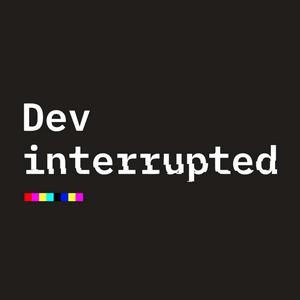
Descarga la app gratuita: radio.net
- Añadir radios y podcasts a favoritos
- Transmisión por Wi-Fi y Bluetooth
- Carplay & Android Auto compatible
- Muchas otras funciones de la app
Descarga la app gratuita: radio.net
- Añadir radios y podcasts a favoritos
- Transmisión por Wi-Fi y Bluetooth
- Carplay & Android Auto compatible
- Muchas otras funciones de la app


Dev Interrupted
Escanea el código,
Descarga la app,
Escucha.
Descarga la app,
Escucha.







